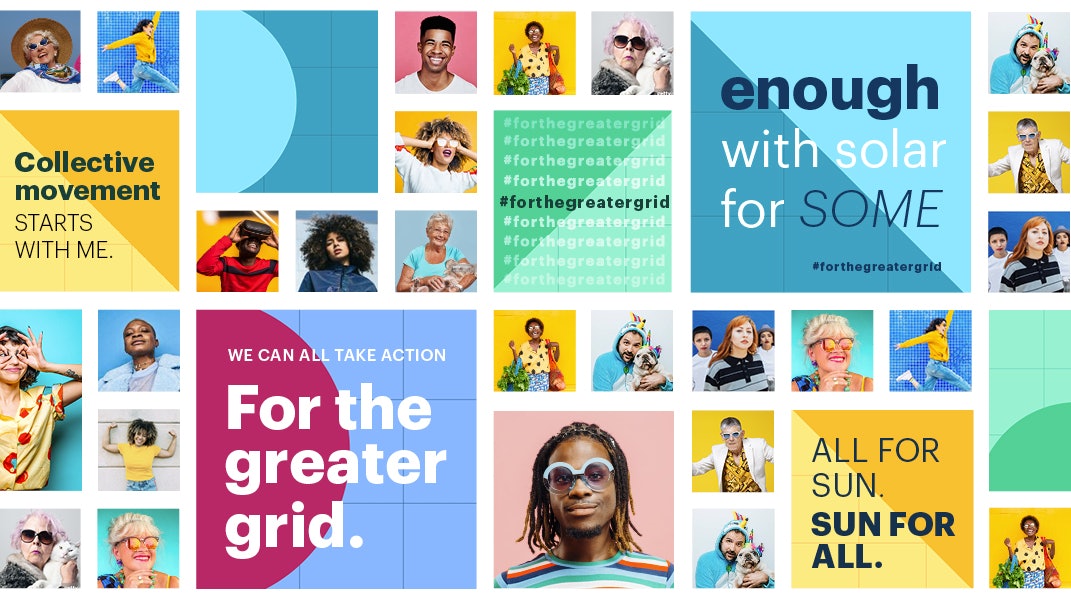This Earth Day, take the pledge to do just one thing

In 1970, some 20 million Americans — students, teachers, families, workers, environmental advocates, politicians from both sides of the aisle — took to the streets in a day of collective action against air and water pollution. Driven by a common goal, all these groups came together to advocate for change. And it worked. By the end of the year, the US government created the Environmental Protection Agency and passed several pieces of landmark climate legislation, including the Clean Air Act.
This year, we’re launching the Greater Grid Pledge as a way to get back to the advocacy of that first Earth Day with real meaning and impact.
Transitioning energy sources alone will not deliver the just, or equitable, energy system we need. A just transition is a fair shift to an energy economy that is sustainable, equitable, and just for all its members.-NAACP Environmental and Climate Justice Program
What is the Greater Grid Pledge?
The transition to renewable energy feels out of reach for most Americans. On a macro level, it’s seen as a complex challenge to be solved by large companies and industry institutions in private deals behind closed doors. On a micro level, access to renewable energy technology, such as rooftop panels, is seen as a privilege for the wealthy.
We want to write a different energy future — one that is not only 100% renewable, but that provides all people the opportunity to benefit from the promise of affordable, renewable energy through equitable solutions like community solar.
In advance of Earth Day 2021, we’re urging individuals to join our Greater Grid Pledge and commit to one action contributing to a renewable energy future that works for everyone.
Why focus on community solar?
We believe that renewable energy should be accessible to all Americans. Although it’s one of the most abundant and cheapest forms of energy, solar has been limited to a very narrow slice of the population — homeowners with the right roof, the right credit score, and the right budget. As a result, even though 80% of Americans are in favor of increased solar production, two-third have nearly no access to solar at all.
But community solar has the power to change that by making solar power accessible for the two-thirds of US households for which rooftop solar is currently out of reach. Instead of rooftop installation, residents simply subscribe to a solar farm in their area at no added cost. As the solar farm generates energy, residents earn savings on their bills and help add more clean energy to the local power supply.
It’s good for the planet and the local community. And it’s democratizing the solar revolution.
Get involved
Step 1: Commit
Sign the pledge to voice your support of a more equitable energy system through community solar. Sign here
Step 2: Do One Thing
One of the biggest misconceptions about clean energy is that you have to have a lot of money to make an impact. With this initiative we hope to rally everyone to “do one thing” toward the collective advancement of community solar.
- Join: Take two minutes to turn your monthly power bill into a vehicle for change. Join a community solar farm near you and help decarbonize your community’s grid. Check availability in your area.
- Speak with a clean energy advisor: Throughout this month you can meet with one of our clean energy advisors for free to learn about what clean energy options are available in your community. Schedule a session.
- Make some noise about community solar: Most Americans don’t realize that community solar is an option for them. Help raise awareness of its climate and bill-saving benefits by sharing your support with your friends and social networks. Spread the word.
- Bring solar to your business: Make change from within by pitching a community solar program for your workplace, employees, or customers. Learn more.
- Advocate for policy change: Sign a petition or contact your local representatives to advocate for community solar legislation in your area. Join our grassroots advocacy team.
- Expand your awareness: Learn more about the importance of energy justice and how you can support groups already working toward a more just, renewable future. Keep reading.
